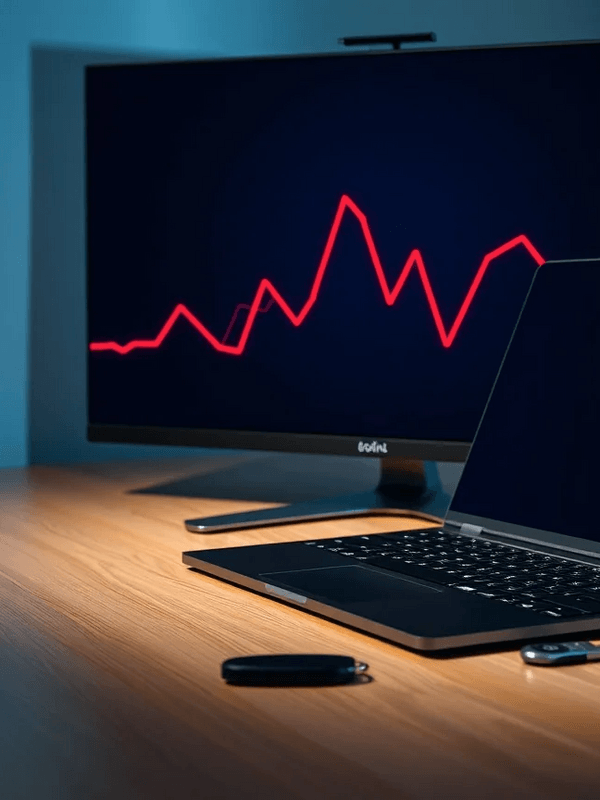Windows 10: Millions of Germans without protection from hackers

The end of Windows 10 support is hitting German SMEs with inadequate cybersecurity strategies. New studies reveal serious gaps in the implementation of protective measures.
The end of Windows 10 and new studies on inadequate IT security are simultaneously impacting German companies. A dangerous combination that is leaving millions of computers defenseless.
This week marks a critical turning point for digital security in Germany, Austria, and Switzerland. Microsoft officially ended free support for Windows 10 on October 14, 2025—just as a new Kaspersky study reveals the appalling cybersecurity situation among small and medium-sized businesses (SMBs).
In recent days, the Federal Office for Information Security (BSI) has intensified its warnings about "serious security risks" posed by the continued use of the outdated operating system. The agency is urging all users to immediately migrate to a fully supported system.
Windows 10 time bomb: Millions of systems become targetsThe danger is real and immediate. Cybercriminals will deliberately search for new vulnerabilities in Windows 10, knowing that Microsoft will no longer release patches. Millions of systems in homes and businesses will thus become easy targets for ransomware, data theft, and other cyberattacks.
Although Microsoft offers paid security updates, experts fear that smaller companies in particular will forgo them. This creates a huge attack surface for hackers. Advertisement: Due to the end of support for Windows 10, many people must act immediately – but what if your PC is officially "incompatible" with Windows 11? A free PDF report shows step-by-step how to legally upgrade despite the compatibility check – without new hardware and without data loss. It's also ideal for beginners and SMEs who need to continue working securely quickly. Get the free report now . The threat comes at a critical juncture: 70 percent of German SMEs admit that their cybersecurity strategy is incomplete, theoretical, or exists only as a declaration of intent. In Austria, the figure is 61 percent, and in Switzerland, 67 percent.
Strategies only on paper: SMEs are poorly prepared"Decision-makers often rely on strategies that look convincing on paper but fall short in practice," explains Waldemar Bergstreiser, Managing Director DACH at Kaspersky. The study, published on Tuesday, reveals a fatal gap between planning and implementation.
One-third of German IT security chiefs admit they don't know how to respond to and resolve cyberattacks. This strategic weakness leaves companies defenseless against modern attacks.
New threats: AI increases extortion attemptsThe risks posed by unprotected software are colliding with an increasingly sophisticated threat landscape. Ransomware attacks increased sharply in 2025, and Germany is a target for criminal groups trading access credentials on the dark web.
Particularly perfidious: Attackers are increasingly using artificial intelligence for deepfake blackmail, specifically targeting private individuals in the DACH region. At the same time, investors are recognizing the region's potential – the Lithuanian AI security company CBRX raised €540,000 this week for its expansion into Germany and Austria.
Regulatory pressure is increasing: NIS2 Directive is taking actionThe uncovered vulnerabilities are particularly explosive in light of the EU NIS2 Directive, which prescribes stricter cybersecurity measures. Germany is lagging behind in its implementation – the law will not come into force until early 2026 instead of October 2024 as planned.
The delay doesn't change the explosive nature of the issue: In the future, managing directors will be personally liable for security deficiencies. Paper strategies will no longer suffice.
What to do now: Immediate measures against the cyber crisisThis week's events are a wake-up call for businesses and governments. The priority is to eliminate Windows 10 risks through upgrades or paid updates.
In addition, SMEs must urgently review their security practices against the upcoming NIS2 requirements. This requires concrete measures: functioning emergency plans, comprehensive employee training, and modern security technologies.
Without decisive action from corporate leadership, Germany's economic backbone remains acutely threatened. The era of paper-based strategies is over.
ad-hoc-news





